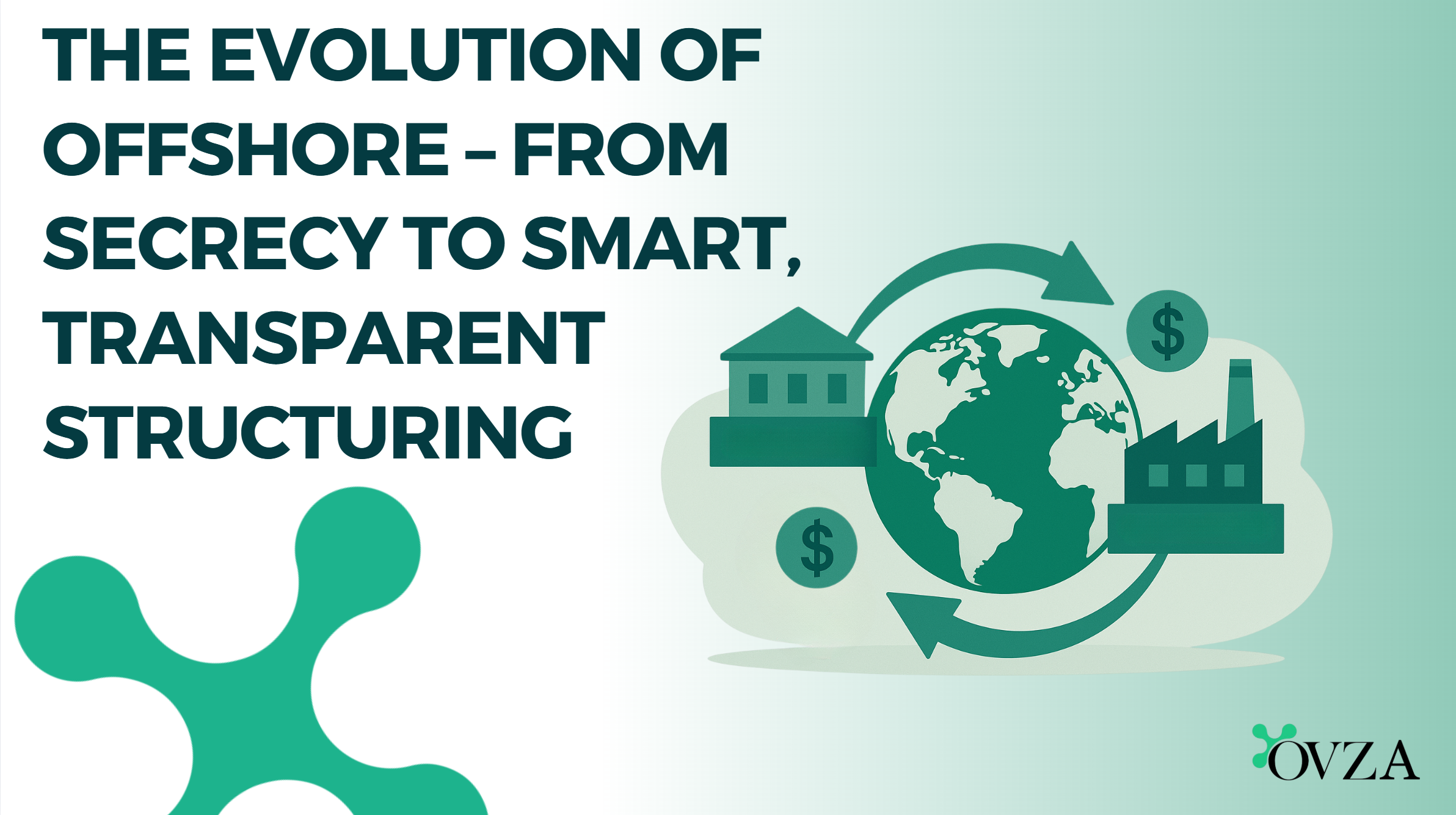Resources
The Evolution of Offshore – From Secrecy to Smart, Transparent Structuring

The phrase “offshore company” once conjured images of secrecy, shell corporations, and tropical tax havens far removed from financial scrutiny. For decades, the offshore world was perceived—sometimes unfairly—as the domain of the ultra-wealthy, used to evade taxes or obscure assets. But that image has changed dramatically.
In 2025, to open an offshore company is no longer an act of concealment—it’s a methodical, legally grounded strategy used by entrepreneurs, digital businesses, and global investors alike. Jurisdictions that once offered anonymity now demand transparency. International standards such as FATCA, CRS, and beneficial ownership registries have reshaped offshore services entirely. What remains is not secrecy, but strategic privacy paired with full compliance.
From Shadowy Dealings to Smart Compliance
The transformation of the offshore industry has been driven by a global push for transparency. Initiatives led by the OECD, EU, and G20 forced jurisdictions to modernize, and those that failed to comply have been blacklisted or cut off from the global banking system.
Today, forming an offshore company requires submitting verified identity documents, declaring ultimate beneficial ownership, and justifying the business model. Shell companies with no substance or purpose are routinely rejected by banks. In their place, we now see real businesses—tech startups, e-commerce brands, and consulting firms—using offshore structures to operate efficiently across borders.
The industry has matured, replacing “pretend offices” with real governance, clear reporting, and cross-border legal planning. Far from being a loophole, offshore incorporation is now an advanced form of structuring used to navigate a globalized, high-compliance financial world.
Offshore Privacy Today: Not Dead, Just Redefined
Privacy in the offshore world hasn’t disappeared—it has evolved. While beneficial ownership may be declared to regulators, it is no longer publicly visible in many compliant jurisdictions. This balance—regulatory transparency without public exposure—is what attracts entrepreneurs who need protection from political instability, overreach, or reputational risk.
Jurisdictions like Nevis, Seychelles, and the British Virgin Islands now offer modern corporate registries that comply with international standards but continue to protect client data from public access. In this way, the offshore world has shifted from secrecy to confidentiality with purpose.
OVZA: A Caribbean-Based Partner with Local Expertise
Unlike many offshore service providers operating remotely from Asia or Eastern Europe, OVZA is a Caribbean-based company with deep roots in the region. We are not a faceless agency operating behind generic websites—we are part of the legal and regulatory environment in which these companies are actually formed. This local presence means we understand the nuances of Caribbean corporate law, registrar expectations, and the banking relationships that make offshore companies functional in the real world.
OVZA provides direct, compliant offshore company registration and offshore bank account opening services across trusted jurisdictions such as the British Virgin Islands, St. Lucia, Nevis, Antigua and Barbuda, and Belize. Because we operate within these jurisdictions—not outside them—we know what works and what fails. We don’t rely on shortcuts or concealment. Instead, we deliver legitimate, regulatory-compliant corporate structures that are tailored to each client’s international needs.
This regional positioning gives OVZA a unique advantage: we speak the language of local regulators, understand banking risk frameworks, and maintain direct relationships with registrars and financial institutions. When you work with OVZA, you’re not entrusting your business to an overseas middleman—you’re partnering with a firm that knows the Caribbean offshore world from the inside out.
The Modern Offshore Client: Digital, Global, and Informed
Today’s offshore client is not hiding anything—they are optimizing. Digital nomads, SaaS founders, crypto-native firms, and multinational investors use offshore companies for currency flexibility, tax residency planning, IP holding, and remote global access.
The industry has become more accessible as well. With digital onboarding, remote notarization, and fintech banking partnerships, anyone with a legitimate use case can access offshore structures—not just the elite. The process is no longer obscure or elitist. It’s a global compliance product, adapted to a borderless economy.
Conclusion
The era of offshore secrecy has ended, replaced by a new age of clarity, legality, and opportunity. To open an offshore company today is to engage in responsible, border-conscious planning—not concealment. It is about protecting business continuity, accessing international banking, and scaling globally in a high-compliance world.
With providers like OVZA leading this transition, the offshore world has become transparent, accessible, and future-ready—yet still private where it matters.

-

 Resources4 years ago
Resources4 years agoWhy Companies Must Adopt Digital Documents
-

 Resources3 years ago
Resources3 years agoA Guide to Pickleball: The Latest, Greatest Sport You Might Not Know, But Should!
-

 Resources8 months ago
Resources8 months ago50 Best AI Free Tools in 2025 (Tried & Tested)
-

 Guides2 years ago
Guides2 years agoGuest Posts: Everything You Should Know About Publishing It
